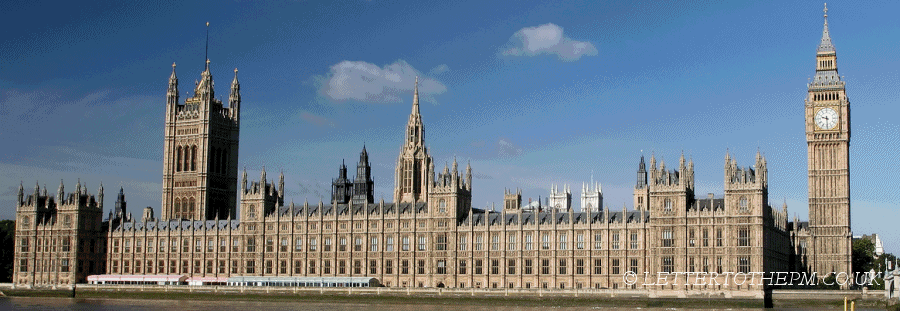
The Prime Minister
10 Downing Street
London
SW1A 2AA
100 Any Road
Typical Town
County
England
28th June 2016
Dear Prime Minister
Do the ends justify the
means: Brexit Referendum
‘Noble lies have been part of
political activity since the time of Plato. In the debate ahead of the
European Union referendum, it may have been inevitable that the pro-EU
Cameron government would issue statements claiming that leaving the EU
would make people worse-off. It may even have been inevitable that such
statements would include high numbers for the alleged cost of Brexit.
After all, the higher the numbers, the more likely it is that
under-informed and undecided voters will become frightened, and that
Project Fear will work by terrifying people so that they opt to stay in.
Perhaps no surprise should have greeted the publication of alarmist
numbers in the Treasury White Paper on The long-term economic impact
of EU membership and the alternatives. At the related press
conference on April 18, Osborne quoted from the command paper to claim
that, on purportedly plausible assumptions, Brexit would cost the
average British household £4,300 a year by 2030.
But what is surprising — and was not inevitable — is that Osborne and
the Treasury should have done the job so ineptly. Plato may have been
right that governments must sometimes be mendacious, to maintain unity
in wartime, to increase alertness ahead of possible terrorism or
whatever. But lies need to have some nobility, with enough slickness in
presentation and credibility in substance, if they are to mould the
public debate. The White Paper was soon trashed in quality
Conservative-inclined publications, exactly those organs of opinion that
a Tory Chancellor ought to be able to influence. Fraser Nelson, editor
of the Spectator, described himself as a Europhile, but said
that Osborne’s dishonesty was “simply breathtaking” and was such that he
might vote “out”. Allister Heath in the Daily Telegraph was
even more damning. He recalled the deception and trickery that took
Analysis of Her Majesty’s Command paper 9250
Video link:
http://mv-pt.co.uk/brexit/
“The video may be a bit technical in places, but I am confident it is easier to follow than the extraordinarily obscure and abstruse Cm 9250. Osborne and the Treasury say that
– EU membership increases the
– the greater an economy’s openness the higher is its productivity
(i.e., output per person), and
– living standards depend on productivity.
My main points are:
– The growth of productivity in UK manufacturing in the decade after joining the then Common Market (i.e., the European Economic Community which became the EU in 1993) in 1973 was less than half that in the previous decade,
– Crucial to the Treasury’s analysis is the claim that openness has increased enormously since the 1940s. I show that the Treasury’s measure of openness (i.e., the ratio of the volume of trade to the volume of national output) rises in all dynamic economies for reasons which have nothing to do with openness, in the sense of participation in international trade deals, such as the EU. The Treasury has made an analytical blunder.
– The EU is to a significant extent a protectionist organization.
Leaving it would enable to the
– The main text of Cm 9250 more or less ignores the contents of the annual White Paper (published since 1980) on European Union Finances, which documents the definite fiscal cost of EU membership, and indicates a cost per household running at over £500 a year.
– Such notions as “benefit tourism” and “health tourism” are undoubtedly meaningful, because governments departments are known (from press reports) to have investigated their size. Benefit and health tourism are ignored entirely in Cm 9250.
– Much EU regulation has an undoubted cost to the
The Treasury analysis in Cm 9250 is dishonest and worthless, while
Osborne is a bare-faced liar. No other phrase makes any sense in the
context. Happily, many other people – even many who want the
The people are not having a referendum merely
in order for Parliament to have a vote on remaining or leaving the EU.
The referendum is not some enormous petition. The referendum is a
representation of the will of the people. The Conservative Party,
or at least its present government has attempted to mislead the people
as to the risk of leaving the EU without expressing the risk of
remaining and with ignoring several factors mentioned above.
Bearing in mind the failure of the Treasury
to produce trustworthy papers on the command of Her Majesty as analysed
by Professor Tim Congdon CBE an expert economist, steps should be taken
to ensue that the government, whether you are in charge or not, has the
support of a team of economists and other scientists to assist the
Treasury during the transition period from being a member of the EU to
being free.
I am sorry Prime Minister but there have
been numerous opportunities for you to initiate leaving the EU that you
have not taken up. You must have known that reform was not a real
possibility. The European Union has not suggested otherwise has it?
George Osborne’s distorted support has not only deterred people from
voting out but has contributed to a scaremongering that has affected our
economy and the value of the pound. Hopefully this will be in the short
term as our economy recovers.
By your intransigence Prime Minister you have severely damaged
the Conservative Party. I do hope that you realise that this country
comes first and all our political parties needs to be free to contribute
to and help to manage our interaction with the EU, Europe as a whole,
and the world, whilst protecting our sovereignty and our economy.
Yours sincerely A. Citizen